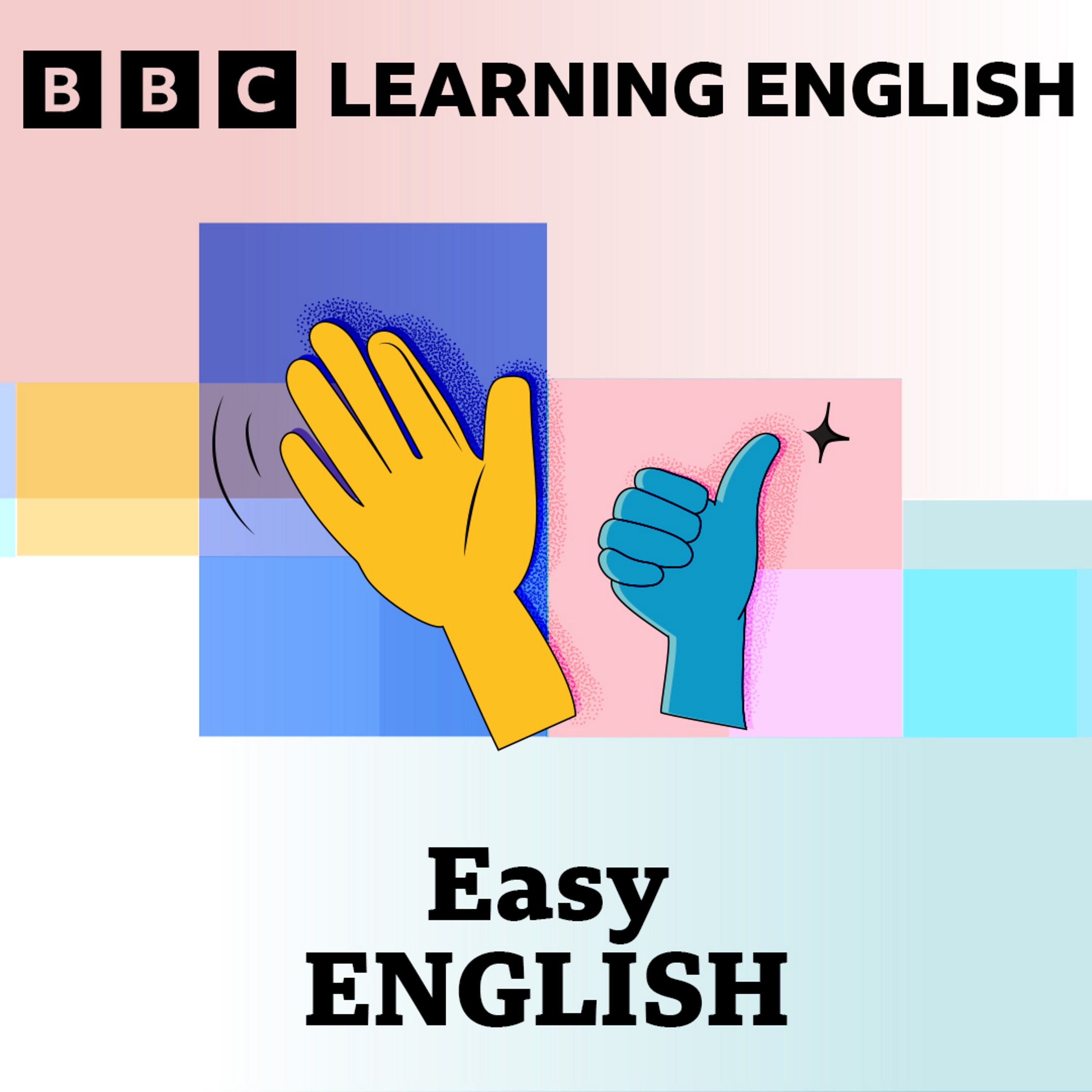
Real Easy English: Talking about your brain

Learning Easy English
Deep Dive
Shownotes Transcript
This BBC podcast is supported by ads outside the UK.
ConstantContact.com
Thanks for listening to this podcast from BBC Learning English. Continue your learning on our website with courses, quizzes and programmes to improve your English.
Hello and welcome to Real Easy English. In this podcast, we have real conversations in easy English to help you learn. I'm Georgie. And I'm Neil. And don't forget, you can now watch a version of this podcast on our website at bbclearningenglish.com.
How are you today? I'm pretty good. How about you? Yes, I'm good. It's the morning so my brain is fresh and ready for the day. Excellent, because we're talking today about our brains. We are. We're going to talk about how we keep our minds active, so kind of like exercise for our brains. Shall we get started? Let's do it. So, Neil, do you think you have a good memory? Well, it depends.
I can remember things that happened years ago that don't seem very significant at all. And then I can struggle to remember what I did at the weekend.
I have the same problem. I guess that's the difference between our long-term memory, so that's things that happened a long time ago, and the short-term memory, so things that we did this morning, I also struggle to remember what I had for breakfast and things like that. So Neil, is there a time recently where you couldn't remember something and it was annoying?
Well, I did a quiz with my daughter and she's 15 and quite sharp. And I knew all of the answers. I mean, I have better general knowledge than her, I think. But she said all the answers quicker than me. I think just the distance between her brain and her mouth is shorter than mine. Were the answers on the tip of your tongue? The answers were on the tip of my tongue. They just didn't get a chance to get out there.
So I have a story as well, a time when I couldn't remember something. My friend was talking about something, about an event where I was, and I didn't remember it at all. And she had to ask another friend to get evidence to prove to me that it had happened because I didn't believe her. And it was so strange because it was true that it happened, but I didn't remember it. Do you think you have a quick...
quick brain? I don't actually. I'm the kind of person that needs some time to process things, what people have said or yeah, I don't like it when people ask me my opinions of things on the spot. I prefer to think about things and form my opinions in my own time. So no, I have a slow brain. Okay.
What do you do to keep your mind active? Well, I like to study languages and that's very good for the brain because you've got to remember all kinds of things and what order they're said in and what happens to the words and that kind of thing. And I like reading. You have to use your brain to read to follow a story.
But I don't do puzzles and crosswords and Sudoku and all of those things that other people do. Maybe I should. Yeah, I do jigsaw puzzles, although I haven't done that much recently. I also I think exercise is quite good for your brain. Is that true? It gets you out of the house. You get some fresh air. I feel like that's quite good for your brain.
What kind of things, Georgie, make your brain less effective? Well, my brain, as I said at the beginning, works better in the morning. In the afternoon, my brain starts not working very well. So I tend to do less important tasks in the afternoon. I also think that before I go to sleep, if I use my phone too much,
too much screen time, I sleep worse and then I wake up feeling a lot less functional in my brain. What about you? Yeah, I agree. I think sleep is massively important. If I haven't slept well, then it's very hard to use my brain effectively the next day. Yeah, and that's quite common for you, unfortunately, isn't it? Hey, that's life. Yeah.
OK, let's recap the language we heard during the conversation. We talked about our memories. Your memory is your ability to remember things. Yes, and Georgie mentioned short and long-term memory. Short-term memory is for things that happened recently and long-term memory is for things that happened a long time ago, even when you were a child. We also heard sharp, which is an adjective used to describe someone who thinks quickly.
We heard on the tip of your tongue, which is an expression which means that something is there that you want to say but you can't say it quickly enough. We also heard screen time. So this is the amount of time someone spends looking at their screen. So your phone, a tablet, a computer. That's it for this episode of Real Easy English. Why not try the worksheet on our website to test what you've learnt? That's bbclearningenglish.com.
And next time, we'll talk about plastic waste and recycling. See you then. Goodbye.